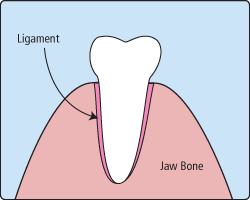Tooth Extraction in Elk Grove, CA
Safe & Gentle Care
Dr. Elsemary and Dr. Salem will do everything they can to save your damaged tooth, but in certain cases, extraction is the best option for your oral health. There are important reasons why our Wackford Dental dentists might choose extraction, including:
- Damage: Whether from decay or trauma, if a tooth is beyond repair, we’ll need to remove it.
- Crowded mouth: Some patients have teeth that grow in the wrong direction, are too large or too small, or can’t break through the gums.
- Infection: In some cases, damage or decay can affect the tooth’s root. Your dentist may attempt to treat it with antibiotics, but if that doesn’t work, they might need to remove it to prevent the infection from spreading.
- If your immune system is compromised, extraction might be the best option to prevent infection.
What to Expect From Extraction
As soon as our Elk Grove dentist determines that removing your tooth is the best course of action, they can complete the extraction at a prescheduled appointment or during a routine checkup.
The area where your tooth sits in your jawbone is called the tooth socket. Ligaments secure your tooth in the socket and create a durable attachment which lets you chew while your tooth stays firmly in place.
Your dentist will begin the extraction by administering a local anesthetic to numb the concerned area. When you’re ready, we’ll gently rock the tooth from side to side, loosening it in the socket. Once it’s movable, we’ll extract the tooth. The entire process happens quickly, and thanks to the anesthetic, it’s pain-free.
After removing a tooth, adjacent teeth might shift out of position. This can cause severe problems including jawbone depletion and additional tooth loss. To avoid these complications, we recommend replacing the tooth with the only restoration that stimulates healthy jawbone growth — dental implants.
Extracting Wisdom Teeth
Wisdom teeth are a set of molars found at the very back of your smile. Typically, these teeth don’t erupt until the later teens or early twenties. Wisdom teeth often become impacted because there’s not enough room for them to erupt. Impacted wisdom teeth cause swelling, soreness, and severe pain.
Most patients need to have their wisdom teeth removed even if they’re not already impacted. These teeth are difficult to care for since they’re located in the back of the mouth and they’re susceptible to tooth decay, recurring infections, and gum disease.
Wisdom Tooth Removal
Wisdom tooth removal begins with your dentist numbing the area with a local anesthetic. If you’re feeling anxious about the procedure, you can ask your dentist about our dental sedation options.
Wisdom teeth extraction is challenging because your dentist has to go through your gums and jawbone to access it. During this procedure, they’ll need to remove the gums and bone covering the tooth in order to remove it.
After we extract the tooth, you’ll begin the healing process. Depending on the difficulty of the procedure, your healing time may vary. Typically, most patients will fully recover after three or four days.

